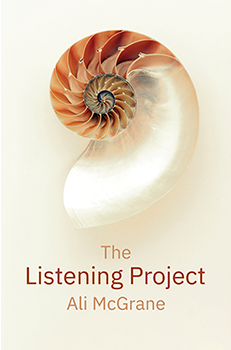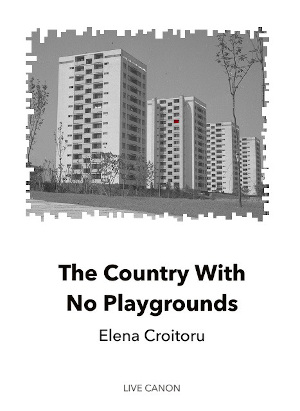
In this collection overflowing with awarding-winning and highly commended flash fictions and micro tales, author Jude Higgins creates a world where goddesses stroll through the eons to discover Zoom while humans lament decreasing biodiversity and discover the simplicity of love beyond semaphore. Even at its most playful, this is a collection with big messages at its heart.
As I read, my mind filled with images – colour is a vital ingredient of Jude’s fiction. not least in ‘Pink’, where it paints a beautiful scene against a story of loss again “the blush of that single rose growing by the door, you said was a winter miracle, still alive, trembling in the frost.”
Overall, the colour-saturation of the writing is an impression enhanced by Jeanette Sheppard’s wonderfully evocative cover image.
Love stories are unconventional in Jude’s hands, even when they draw on familiar sources. In ‘Jack and Jill’ we discover how Jack really came to fall down the hill, and all that was lost because of it.
Familiar nursery rhyme and characters crop up throughout, from an ageing Gretel rewriting the past to a sparky, empowered Rapunzel.
Other tales experiment with form to devastating effect. ‘Dark Horses’ is particularly deft, telling Alf’s story by listing the horses he has known and loved. This is also one of the flashes accompanied by an image – adding another layer of storytelling I appreciated.
Family relationships are examined with a gentle, dreamlike magic realism in ‘Manna’ and ‘Wash it All Away.’ In each of these, and so many of her other stories, Jude shares her understanding of and empathy for human nature.
In the title story, ‘Clearly Defined Cloud’, an ending offers the promise of quiet contentment you’ll want to savour by reading more than once, while ‘The Icing’ clings to hope as precarious as petals and button eyes. Jude’s skilful touch and painterly imagery allows hefty topics to land lightly, sneaking in emotions below scenes of nostalgia and deceptive calm.
One of my favourite’s in the collection is ‘How to Collect Water From a Well When There is Only an Office Chair to Hand.’ In this dystopian tale, three thirsty women who’ve lost everything to men team up to solve the title’s puzzle and see off a growing number of salacious frogs. Some lines hint at a darkness that draw to mind Margaret Atwood’s The Handmaid’s Tale with the women taking turns to have spins on the chair “to remind me when I could go out and work in an office.”
This is a collection of sweeping variety, with each flash offering fresh viewpoints on the people we are, the hopes we hold close and the experiences that impact us along the way.
This book was given to me in exchange for a fair review.
Clearly Defined Clouds by Jude Higgins is published by AdHoc Books. Buy your copy.
The Great Festival Flash Off, online, hosted by Jude Higgins, is on Saturday 26th October 2024
At this online session, I’ll be teaching a one-hour version of my ‘Writing on Water’ workshop, inviting flash writers to explore different ways of using water to dive deeper into themes in their writing, with generative exercises, examples from a variety of writers, and time to write.
The full day (11am to 6.30pm) only costs £30, with two hour-long workshops and one 90min workshop, plus readings, breakout rooms for chats, yoga for writers and a competition each time.
In addition to ‘Writing on Water’, the 26th October edition of the Great Festival Flash Off includes workshops with Ingrid Jendzrejewski and a discussion/reading/Q&A with Karen Jones and Diane Simmons.

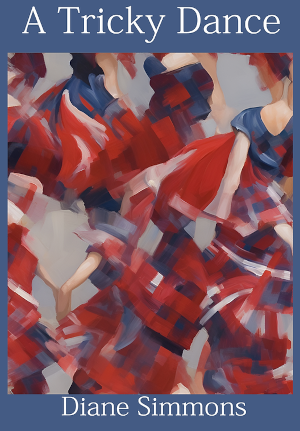 Contained within just forty pages, Diane Simmons’ novella-in-flash portrays a 1970s childhood and adolescence that shines with possibilities. Exploring the ways we discover, confound or eschew our assumed paths through life, Diane introduces us to Elspeth, not the richest and maybe not the smartest, the most popular or the prettiest, but very much the star of her own story.
Contained within just forty pages, Diane Simmons’ novella-in-flash portrays a 1970s childhood and adolescence that shines with possibilities. Exploring the ways we discover, confound or eschew our assumed paths through life, Diane introduces us to Elspeth, not the richest and maybe not the smartest, the most popular or the prettiest, but very much the star of her own story. Whatever season you choose to read, or give, these stories by Amanda Huggins, the gently tended sentences will reward you with a deep sense of connection with nature. Each is a portrait of a character treading carefully through their own personal emotional landscape, set against the sensorial wealth of Japan. Amanda candidly reveals her own fervour for this country in the collection’s foreword and closing essay. Once you start reading the stories, you’ll find the author’s enduring interest in and passion for this country and the people who live or visit it seeping under your skin.
Whatever season you choose to read, or give, these stories by Amanda Huggins, the gently tended sentences will reward you with a deep sense of connection with nature. Each is a portrait of a character treading carefully through their own personal emotional landscape, set against the sensorial wealth of Japan. Amanda candidly reveals her own fervour for this country in the collection’s foreword and closing essay. Once you start reading the stories, you’ll find the author’s enduring interest in and passion for this country and the people who live or visit it seeping under your skin.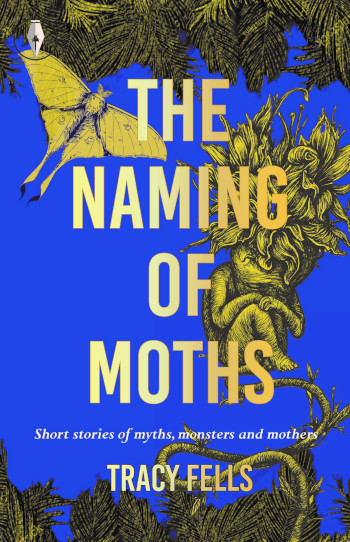 With such an evocative title and cover, you know you’re in for a world of wonder with this collection of short fiction. The tagline ‘Short stories of myths, monsters and mothers’ adds a flicker of curiosity before you enter the pages’ worlds.
With such an evocative title and cover, you know you’re in for a world of wonder with this collection of short fiction. The tagline ‘Short stories of myths, monsters and mothers’ adds a flicker of curiosity before you enter the pages’ worlds.
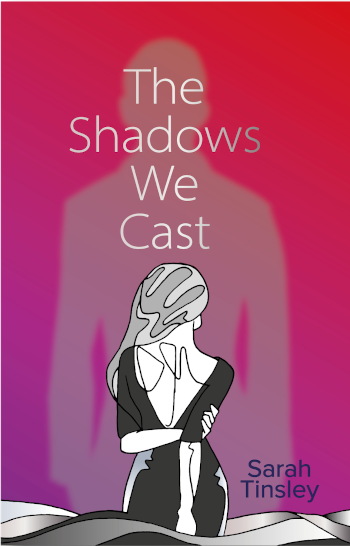 With chapters headed by names and starting with two time-frames (Now, After), the moment you open
With chapters headed by names and starting with two time-frames (Now, After), the moment you open 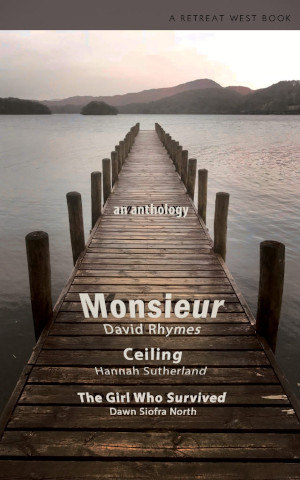 The latest anthology of winning novelettes-in-flash from Retreat West offers up three intriguingly layered tales.
The latest anthology of winning novelettes-in-flash from Retreat West offers up three intriguingly layered tales. With the sub-title “from blank page to finished manuscript”, this is very much the printed equivalent of taking a focused MA on the topic of the novella. It’s laid out beautifully clearly into modules, with delicious, restorative snacks in the form of exemplary flash fiction nuggets to nibble on along the way.
With the sub-title “from blank page to finished manuscript”, this is very much the printed equivalent of taking a focused MA on the topic of the novella. It’s laid out beautifully clearly into modules, with delicious, restorative snacks in the form of exemplary flash fiction nuggets to nibble on along the way.